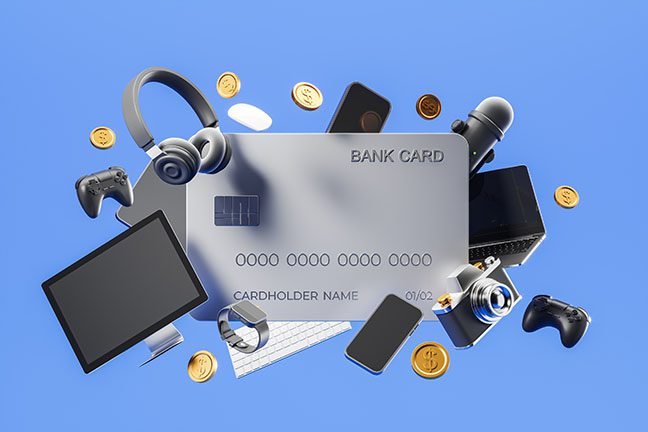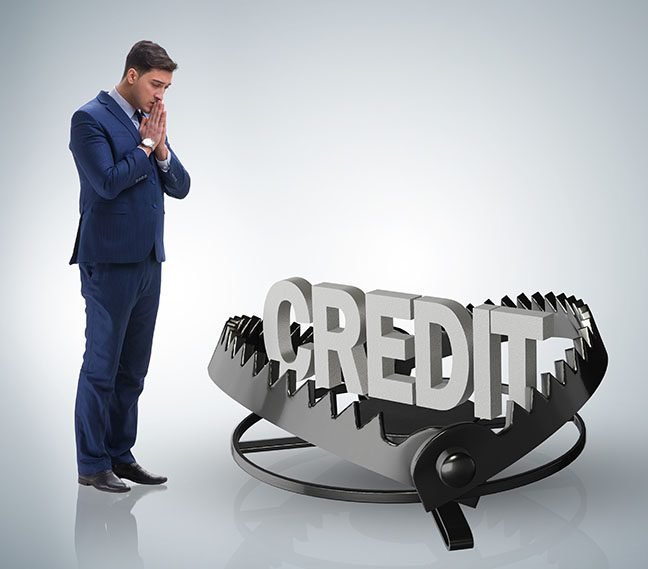As a new immigrant to the United States, building a credit history is essential for accessing loans, credit cards, mortgages, and other financial products necessary for establishing yourself in a new country. It is the key to your ability to borrow money to start a new business or to buy a home.
However, lacking prior US credit experience and unfamiliarity with the credit ecosystem can pose obstacles for newcomers. Luckily, these hurdles can be overcome if you take the time to understand how they work. This comprehensive guide will go through all you need to know about how to build credit as an immigrant in the US, including the key strategies, tips, and best practices.
What Are Credit Reports and Credit Scores?
As a newcomer, understanding the mechanism of credit reports and scores is a mandatory first step to mastering credit building.
A credit report is a record summary of your credit history, including borrowing and repayment behavior across various types of credit accounts you have – such as credit cards, personal loans, auto loans, mortgages, student loans, and retail accounts.
Major consumer credit bureaus – Experian, Equifax and Transunion – compile reports by aggregating data furnished monthly by banks, lenders, and financial institutions concerning each customer’s credit accounts and activity.
Information contained in credit reports includes personal details, account types, account opening and closing dates, credit limits, credit card balances owned, personal loan amounts, payment history and timelines, delinquencies, bankruptcies, tax liens, and other data that reflect an individual’s credit management habits over time.

Major Credit Bureaus In the United States
There are three major credit bureaus that collect credit information and calculate credit scores in the United States. As a new immigrant, it’s important to check your reports at these bureaus to spot any errors or inconsistencies that could incorrectly lower your scores. And make sure to keep monitoring your credit records regularly as it is key to establishing and maintaining positive credit history and high credit scores.
Experian
One of the largest credit bureaus that maintain credit reports for individuals and businesses. Experian‘s consumer credit reports include payment history, current balances, credit age, and new credit accounts.
TransUnion
TransUnion is another large credit bureau that collects information from lenders and creditors to create consumer credit reports. Like other bureaus, they track payment history, balances, credit age, etc.
Equifax
A leading credit bureau that provides individual credit reports and credit monitoring services. Equifax gathers data on how regularly bills and debts are paid.

Key Factors That Impact Your Credit Scores
The U.S. credit system can be complex and confusing. Knowing the key factors that impact your credit score – such as payment history, credit utilization, credit mix, and average age of accounts – allows you to make informed choices that will help both build your good credit score over time and plan your financial future in your new homeland.
Payment History
Whether payments were made fully and on time. Most heavily weighted.
Credit Utilization Ratio
The proportion of total credit limits currently being used. Keeping this low helps scores.
Credit History Length
Scores favor long, established credit histories.
New Credit Applications
Too many new accounts lower scores temporarily.
Credit Mix
Having experience managing different credit types (cards, car loans,, etc)
Regularly checking your credit reports and monitoring scores from Equifax, Experian, and Transunion allows you to diagnose which factors most impact your creditworthiness. You can also identify weaknesses that pull scores down so that you can address those areas through improved credit habits.

Learn To Build A Good Credit History - a step-by-step guide
Establishing Your Identity
Before consumer credit bureaus can begin generating a credit file and history, you must first reliably confirm your identity. Identity verification challenges are partly why immigrants with no US credit experience struggle to initiate new credit accounts.
When you try to open credit accounts, make sure to bring appropriate documentation during the application process. This will help make it easier for credit card companies and lenders to conduct legal identification and more importantly, to approve your account application.
Here are some recommended identity documents:
- Passport – Provides photo ID and birth date from country of citizenship.
- Social Security card – Confirms authorization to work in the US along with age.
- US Driver’s license – Establishes residency and physical address in addition to age and legal name.
- ITIN (Individual Taxpayer Identification Number) card – Issued by IRS for tax filing purposes to foreign nationals.
- National identity card from country of origin – Helps confirm birth date and full legal name.
- Entry visas or Green card – Proves current lawful immigration status in US.
Make sure that all personally identifiable information on credit applications including full legal name, date of birth, social security number, current home address etc. exactly matches identity documents to sure smooth verification.
Once you are identified for your first major credit accounts, credit bureaus can seamlessly add subsequent accounts using existing records. This will make building a robust credit file easier over time.
To Open a Bank Account
As a starter, you may consider opening a checking or savings account at a bank or credit union. While a bank account doesn’t directly impact your credit, it establishes a financial history and is often a prerequisite for other credit-building activities.

Opening a Secured Credit Card
Secured credit cards are specifically designed for credit-building purposes by people who have yet to build a credit history. In contrast to an unsecured credit card, it requires a cash deposit that usually equals your credit limit. Such a deposit acts as collateral every time you make a purchase with a secured card.
When applying for secured cards from credit card issuers, look for low fees, low deposit requirements, and no annual fees. It is also important to check that the issuer reports account activity to at least one major bureau. Prepaid debit cards do not help to build credit. If you use them diligently, secured cards can provide the entry point to establishing US credit for immigrants.
Becoming an Authorized User
Here’s a shortcut strategy to accelerate credit building for immigrants with no local history: find a family member or friend who already has an active and long US credit history and ask them to make you an authorized user of their existing credit card accounts.
As an authorized user, the primary account holder permits you to use their credit card account with certain privileges but retains responsibility for making payments. When the primary user shows good credit card behaviors, such as maintaining a low balance and making payments on time, it reflects positively on you as an authorized user of the same account.
That said, you should be mindful that the accounts that you are being added to are in good standing with excellent repayment history. Positive records will get linked to your credit file and help build your score.
Exploring Credit Builder Loans
Credit builder loans are another effective way specifically tailored for immigrants and others starting without a positive credit history to demonstrate positive repayment patterns to bureaus.
When a credit builder loan is approved, the money is deposited and held in a savings account during the loan term as collateral, rather than being disbursed to you directly. As you make your monthly payments on time, they will get reported to national credit bureaus to help build your credit history.
Credit builder loans are offered by some banks, credit unions and specialized lenders. Loan amounts generally range from $300 to $1000 for terms of 12-24 months. Making on-time payments every month establishes strong payment history with bureaus to boost your credit score.

Maintaining a Low Credit Balance to Credit Limit Ratio
This refers to the ratio between the current balance owed in all your all revolving credit accounts, such as credit cards, and the total credit limits across those accounts.
Credit utilization directly influences your credit scores, with lower ratios considered better for scores. As such, if you regularly keep both your credit card balances low and well under their credit limits, it helps demonstrate a lower risk, which will then translate into higher scores.
Conversely, maxing out cards repeatedly may drag your score down by signaling risk. You should try keeping your overall credit utilization below 30%.
Pay Bills On time
Make sure you pay your bills, such as rent, utilities, and phone bills, on time. Although these payments may not initially be reflected on your credit report, some credit scoring models consider alternative data, which includes rental and utility payment history.Following these basic steps can help new immigrants effectively establish and build a strong U.S. credit history.
The key is to be patient as building good credit often takes time — generally, you will need to show that you use credit responsibly for 6 months or more before you can start seeing improvement in your record.

Building Credit Diversity
Credit reports and scores favor borrowers who show that they have the ability to manage different types of credit responsibly. These include revolving (credit cards), installment (personal loans), auto loans, mortgages and other varieties other than just credit cards or retail accounts.
Once you’ve established a base credit history and score in the fair to good range, consider gradually opening additional credit types like small unsecured personal loans. Manage them carefully by making scheduled payments in full and on time. Diversifying credit types while maintaining robust payment histories across accounts helps build scores.
Disputing Errors on Credit Reports
Incorrect account information on your credit reports, such as late payments marked erroneously, accounts that don’t belong to you, incorrect personal details, etc can unjustly lower your scores.
Under the Fair Credit Reporting Act, credit bureaus are required to promptly investigate and rectify any disputed report errors through a formal dispute process. As such, in case of a dispute, make sure you submit disputes to each bureau online or by mail with supporting documents.
If the disputes are not addressed, you should file a complaint with the Consumer Financial Protection Bureau’s consumer response team, which will help facilitate dispute resolution free of charge. Make sure any inaccuracies are fully deleted or resolved as they can damage your scoring.

Avoiding Credit Traps
When trying to accelerate US credit building as an immigrant, avoid high-risk credit behaviors and products even if they provide short-term access to credit. These include:
- Payday loans with exorbitant interest rates create debt traps
- Overdraft protection on bank accounts which allows overspending
- Excessive hard credit inquiries from serial loan applications
- Co-signing other loans where you have no control over repayment
- Racking up credit lines through retail store cards or subprime cards
- Taking on additional debt not commensurate with income
Just remember: not only will these behaviors fail to help your credit building, but they will actually undermine your creditworthiness!
Good Luck and Be Patient - Good credit takes time
Credit building is a marathon, not a sprint. With focus and perseverance, a strong credit profile and future can be assured. Patience, education and diligently following sound credit practices ultimately help immigrants unlock far greater access to premium credit cards, business credit, mortgages, student loans and other lines of credit critical for achieving life goals and fulfilling the American dream.

